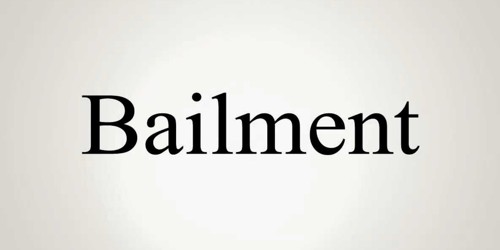Bailment
It occurs when an item or items is transferred to another party to be hold temporarily. It is the act of placing property in the custody and control of another, usually by agreement in which the holder (bailee) is responsible for the safekeeping and return of the property. Bailment refers to the delivery of goods or property by one to another for some purpose and when the purpose is accomplished; the goods will be returned or disposed of according to the direction of the person delivering them. A gratuitous loan and the delivery of property for repair or safekeeping are also typical situations in which a bailment is created. The person who gives the items is known as the bailor, while the person who receives the items is known as the bailee. Examples: bonds left with the bank, autos parked in a garage, animals lodged with a kennel, or a storage facility.
In finance, Bailment applies to the legitimate transfer of securities, such as shares of stock, from one owner to another for the purpose of short selling. A bailment is not the same as a sale, which is an intentional transfer of ownership of personal property in exchange for something of value. There are three types of bailments: (1) for the benefit of the bailor and bailee; (2) for the sole benefit of the bailor; and (3) for the sole benefit of the bailee.
A bailment for the mutual benefit of the parties is created when there is an exchange of performances between the parties. It is a form of a contractual relationship, even if no contract has been signed. A bailment for the repair of an item is a bailment for mutual benefit when the bailee receives a fee in exchange for his or her work. In order for a bailment to exist, the bailee must have both the intent to possess the property, and actual possession of the property.
















